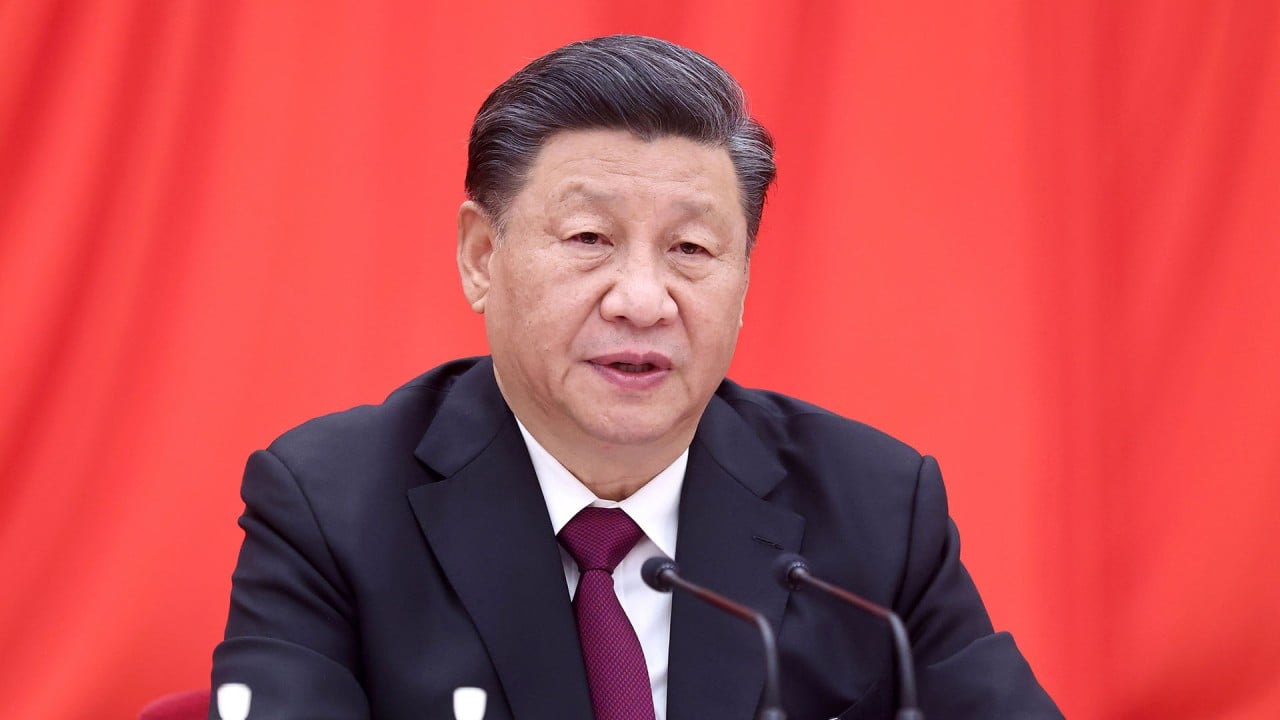
Lesson from history: how Chiang Kai-shek lost China
- In reviewing history, the Communist Party made no mention of the collapse of KMT rule in mainland China
- But, for Beijing, the blunders and character flaws that culminated in the Nationalists’ defeat in the civil war could be more instructive than the collapse of the Soviet Union
“Looking back on the Party’s endeavours over the past century, we can see why we were successful in the past and how we can continue to succeed in the future,” read the communique of the plenum. “This will ensure that we act with greater resolve and a stronger sense of purpose in staying true to our Party’s founding mission, and that we more effectively uphold and develop socialism with Chinese characteristics in the new era.”
One episode that went unmentioned in the recent communique but could offer Xi more resonant lessons is the collapse of Kuomintang rule in mainland China. For all the strengths of Mao Zedong and the Communists, the weaknesses of Chiang Kai-shek and the KMT were decisive in bringing about an end to Nationalist rule on the mainland.
After its founding in 1921, the Communist Party grew slowly and secretly, relying on dual membership within the ranks of the KMT.
When Chiang discovered the extent of Communist membership within his party, he initiated a purge that killed thousands and drove the Communists into hiding. It was under these dire circumstances that Mao emerged as the Communist Party’s strongest leader.
After a tense truce during the Second World War – when the Communists and Nationalists put aside their differences to fight against the Japanese – the Chinese Civil War resumed and culminated in the KMT’s defeat and flight to Taiwan in 1949.
This outcome should be attributed not only to the superiority of the Communist forces and leadership, but also to a series of blunders and character flaws.
Chiang himself was open about the shortcomings of the KMT as its war with the Communists teetered on the brink of disaster. In January 1948, he said that “never, in China or abroad, has there been a revolutionary party as decrepit and degenerate as we are today; nor one as lacking spirit, lacking discipline, and even more, lacking standards of right and wrong as we are today. This kind of party should long ago have been destroyed and swept away.”
On China relations and Taiwan, it’s time for America to grow up
This was far from a one-off criticism; as Lloyd E. Eastman detailed in a China Quarterly article, Chiang frequently opined on the defects in the KMT from 1947 to 1950. He identified core weaknesses, including a lack of military knowledge among officers, poor training of soldiers, and rampant corruption.
As Aris Tenon wrote, Chiang was capable of “self-deprecating statements” that showed his awareness of the party’s weaknesses, but lacked the will or ability to address those issues.
The emissary proposed that my father lead an ambitious campaign to reclaim Manchuria from the Japanese. The loss of Manchuria over a decade earlier had been devastating to my father, and the chance to help expel the Japanese from his home was one I knew he would have readily seized.
But the decision to launch such an expedition ultimately lay not with my father but with Chiang, who did not endorse the mission because he was paranoid that my father would use the opportunity to declare Manchuria independent.
Even though they had been roommates in Japan from 1908-1910, where both attended a military academy, Chiang never fully trusted my father. Chiang’s mistrust of those not from his native Zhejiang province clouded his judgment and alienated those who could have given him better counsel. He could have seen my father as an asset who could bring Manchuria back under Nationalist control.
Losing control of Manchuria made it almost inevitable that Chiang would lose control of China. It was from Manchuria that the Communists advanced south towards Beijing.
In April 1946, I watched Chiang deliver a rousing speech promising he would defeat the “Red bandits” within three months. When I relayed this pledge to my father, he was rightfully sceptical. A little more than three years later, Mao’s forces were victorious, prompting Chiang and his government to flee to Taiwan.
Chiang’s failings ultimately doomed the KMT and helped ensure Mao’s victory. He was thus both the Communist Party’s arch-enemy and an asset to it.
Chi Wang, a former head of the Chinese section of the US Library of Congress, is president of the US-China Policy Foundation


